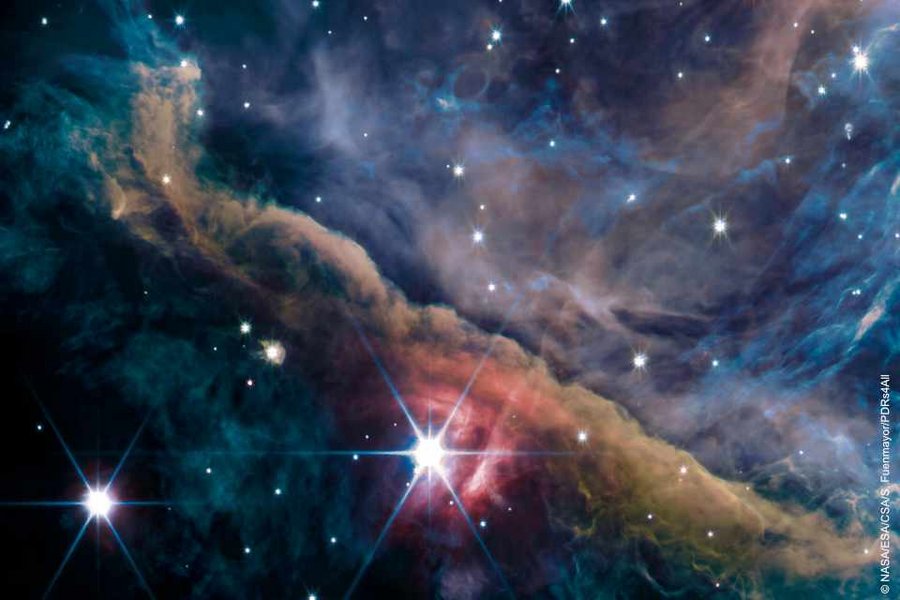
Up to a certain point, very luminous stars can have a positive effect on the formation of planets, but from that point on the radiation they emit can cause the material in protoplanetary discs to disperse.
To find out how planetary systems such as our Solar System form, an international research team including scientists from the University of Cologne studied a stellar nursery, the Orion Nebula, using the James Webb Space Telescope (JWST). By observing a protoplanetary disc named d203-506, they discovered the key role massive stars play in the formation of planetary systems that are less than a million years old...
Read More





Recent Comments